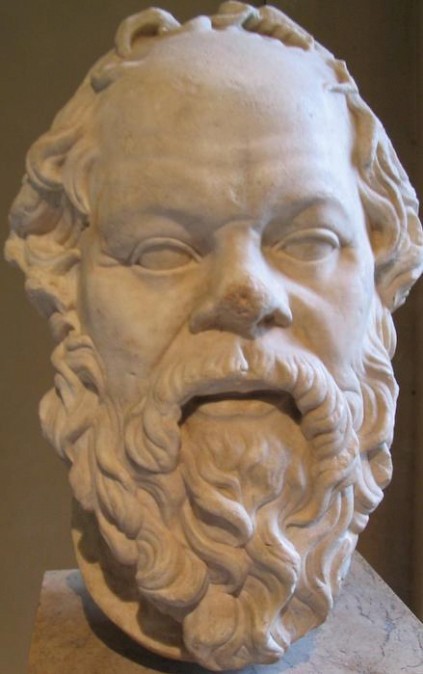Socrates
Socrates (Greek Σωκράτης; 469-399): Athenian sculptor, philosopher, teacher of Plato, Xenophon, and Antisthenes.

Thales, Pythagoras, Heraclitus, Parmenides, and Democritus had been trying to explain the diversity of nature. The object of the philosophy of the Athenian Socrates (was altogether different: he was interested in ethics. It was his axiom that no one would knowingly do a bad thing. So knowledge was important, because it resulted in good behavior. This was an important change in the scope of philosophy, and it has become customary to divide the history of the Greek quest for wisdom into a "pre-Socratic" phase, a classical phase (Socrates, Plato, Aristotle), and a hellenistic phase.
If we are to believe his student Plato, Socrates was always asking people about what they knew, and invariably they had to admit that they did not really understand what was meant by words like courage, friendship, love etc.
Socrates was never without critics. The comic poet Aristophanes ridiculed him in The Clouds, and when his pupil Alcibiades had committed high treason, Socrates' position became very difficult. The people's court (heliaia) condemned him to death after a charge that he had corrupted the youth; he was forced to drink hemlock.
Socrates left no writings. His ideas must be reconstructed from the publications of his students, which include the philosophers Antisthenes and Plato and the historian Xenophon.
Literature
A biography was included in the Lives of Eminent Philosophers by Diogenes Laertius (here).